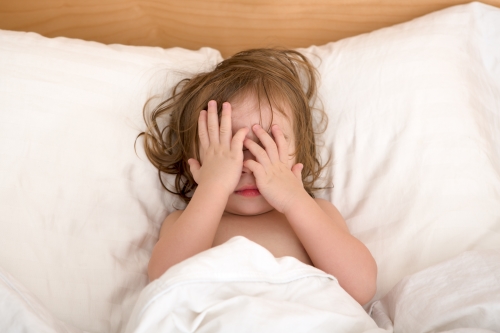Getting up in the middle of the night to change wet sheets and console an embarrassed child happens in most homes at some point.
Bedwetting often comes with the potty training territory, but for some children it lasts much longer than it should.
Generally, bedwetting before age 7 isn’t too much of a concern, but if it persists, it might be time to seek help.
The old school of thought says bedwetting occurs in children who are deep sleepers and have higher-than-normal urine production.
We now know this isn’t the case.
Bedwetting doesn’t happen because a child is sleeping too hard to wake up. It happens because the connection between the brain and the bladder isn’t firing quite right.
For some kids, this connection simply takes longer to develop.
Bedwetting happens more frequently in boys than in girls and, studies show, if both parents were bedwetters as children, their child has a 50/50 chance of also having an issue. It even affects up to 3 percent of teenagers.
To end bedwetting, we need to train the brain to better respond when the bladder is full.
There are tools, such as alarms that can be placed in the underwear, that sound when a child starts to urinate.
The theory is: The alarm goes off early enough in the process to wake the child so they can make it to the bathroom.
However, for this method to really be effective, a parent should be in the same room so when the alarm sounds, they can ensure their child gets up in time to use the restroom.
There also is medication available to reduce urine output at night so there is a lesser chance of bedwetting.
The most important thing to know during this process is to never blame your child for wetting the bed. Don’t punish, shame or make fun of them, because it is not their fault.
And if your child previously stayed dry at night and seems to have started bed wetting out of nowhere, there could be other issues going on such as a urinary tract infection or constipation.
In that scenario, call your doctor right away.
With a little patience, some method experimentation and guidance from your doctor, your child will soon realize a good — and dry — night’s sleep.



